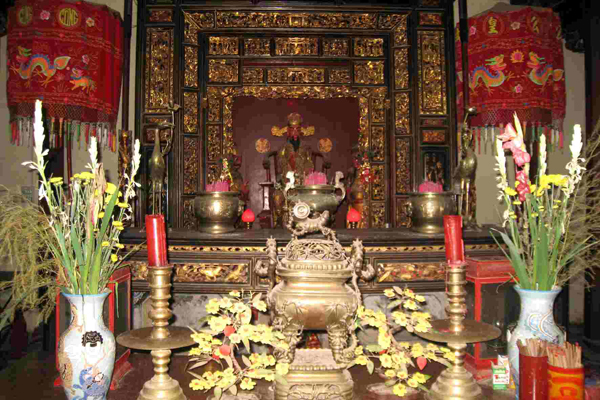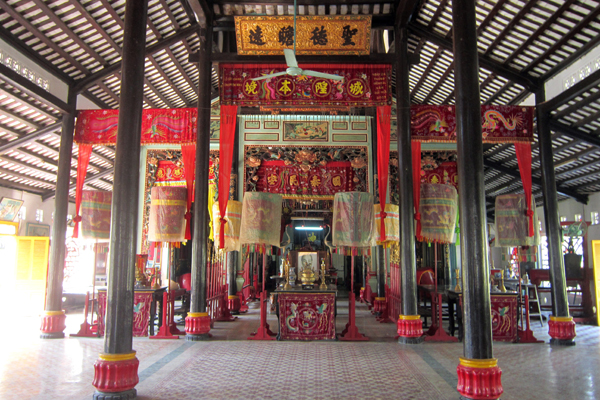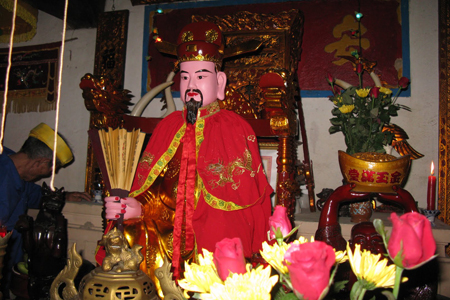Each Vietnamese village has a tutelary or guardian spirit, a custom that probably dates from the 15th century when the Lê Kings gave priority to Confucianism. At the end of the annual festival at the village communal house, there is a ritual (hèm) to honor the tutelary god, often commemorating a characteristic trait attributed to the spirit. If the guardian spirit is a beggar, for instance, people bring a stick and a beggars bag. If the spirit is a tiger, wild animal costumes are used. If a warrior, villagers throw firecrackers. Other villages have unusual guardians: a pig dealer, night-soil collector, robber, wrestler, or pervert. In these cases, traditional activities also fit the god's character: a pig chase, a symbolic collection of excrement, a brawl, beatings administered to a statue, a procession of genital organs, or obscene dances.

The more indecent of these rituals would be held at night, for the villagers only; most are no longer kept. On more formal occasions, offerings are presented to the tutelary god in an village ceremony (tế). The master of ceremonies (chủ tế) must be an old man of high rank, actual or honorific, or the highest village notable (tiên chỉ). Four officiators (bồi tế) assist him and imitate each of his gestures. Standing on either side of the altar are the director of the East and the director of the West and a number of assistants (chấp sự) who offer incense and liquor and read prayers.

The ceremony has four parts:
1. Greetings of welcome to the spirit (nghênh thần), the master of ceremonies and the four officiators bowing four times;
2. Presentation of offerings (hiến lễ): as each offering is presented, the five dignitaries each bow once while an assistant reads the prayer text;
3. The master of ceremonies drinks a full cup of rice liquor, thus drinking the sacred fortune (âm phúc) of the village. He also receives the sacred betel on the announcement “Take the flesh of the sacrifice” (thu tố);
4. Bowing to give thanks (lễ tạ): the master of ceremonies and four officiators bow four times, the text of the prayer is burned and the ceremony comes to an end (lễ tất).
Music is played at solemn moments. Orders are proclaimed loudly by the officiators. The costumes and ceremonial gestures are taken from rites performed in the Royal Court. Common saying: Tế sớm khỏi ruổi (the ceremony must he held soon, or else flies will spoil the offerings): act quickly.



